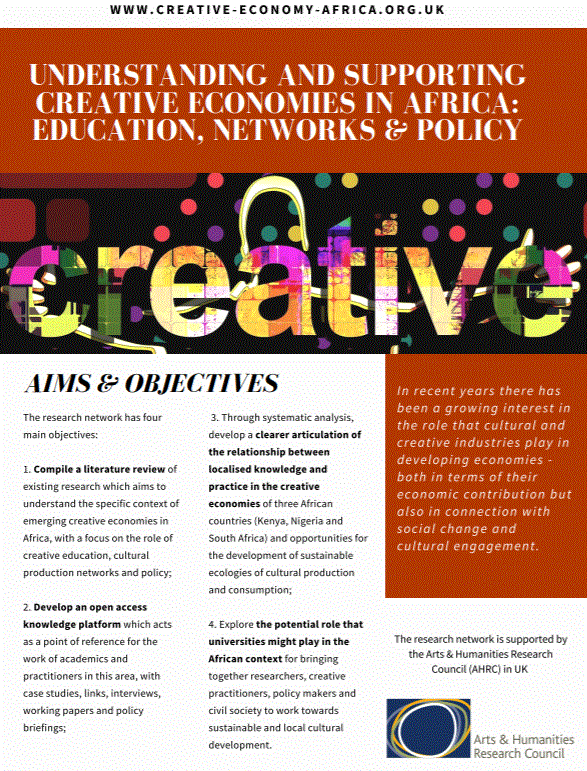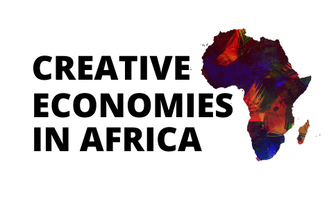|
In Nairobi, the most critically acclaimed filmmakers – both directors and producers are women, a remarkable fact considering the dramatic underrepresentation of female filmmakers in film industries globally. For instance, the British Film Industry’s 2018 Statistical Yearbook notes that women directed only 16% of UK films released in 2017, and Marth M. Lauzen’s most recent “Celluloid Ceiling” report documents that women were directors of only 11% of the top 250 grossing films of 2017 in America. Studying the exceptionalism of Nairobi’s female filmmakers is all the more important given this global context of the marginalisation of women in key filmmaking positions.
When I first heard about these filmmakers I was so excited I decided to set off on a PhD to study them. I had seen the films of Wanuri Kahiu, Judy Kibinge, Ng’endo Mukii, and Hawa Essuman at film festivals and was keen to focus on these auteurs and their fantastic films. Like many a film scholar before me I imagined watching their films in careful detail and interviewing their directors. Like many scholars before me, all my plans went out the window when I started my field research. Eight months in Nairobi and 30 interviews later I had an entirely different understanding of these filmmakers and the industry in which they work. I found that far from a movement of auteur directors with success on the international film festival circuit, Nairobi’s female filmmakers are a movement of entrepreneurial hustlers. Yes, they direct films that play on the most prestigious silver screens, like Wanuri Kahiu’s latest film Rafiki that premiered at Cannes. But they do so much more than this and as it turns out, all this other activity is central to their success. Take Judy Kibinge for example. She has directed several films, including Something Necessary, which screened at the A-list Toronto International Film Festival, but her career has included so much more. She runs the film fund Docubox, has produced her own films, made corporate films, and made incisive political documentaries like Scarred: the Anatomy of a Massacre, among many other projects in a career spanning 20 years. Knowing this, it becomes increasingly untenable to segregate her directorial projects from the rest of her work. Considering all these aspects of her career is essential to understanding how any of her films are made and circulated. Thinking of Kibinge as an ‘entrepreneur’ rather than ‘director’ opens up a new window to understanding her experience. Convention dictates that a filmmaker must start out producing minor works like short films and commissioned work as they build their way up to the top job of feature film director. Once that apex is achieved the rest of the work stops mattering. But if we focus only on the apex – like I was when I started my research – we see only a handful of women and frame the participation of other women as relatively unimportant. The careers of Nairobi’s female filmmakers - from the most established to rising stars – are marked by an ability to flexibly shift between industry segments as opportunities arise. They may move between producing high quality television for cross continental broadcasters, producing lauded ‘festival’ films, to working in extremely low budget modes, or pursuing commissioned projects for the likes of the city’s many development agencies. It would be impossible for them to sustain a career in only one niche and unlikely that they would be able to realise their most creative and daring projects. But because they can move flexibly through this market they can create innovative art works and sustainable careers. Women direct far fewer films than their male counterparts globally, but focusing only on directorial work can obscure the true presence – and significance – of women in film industries. The case of Nairobi’s female filmmakers shows us it is necessary to consider filmmakers much more holistically and include the full scope of their work. Once we do this, we will have a better appreciation of women’s work in filmmaking. Robin Steedman is a Creative Economy Engagement Fellow at the University of Sheffield. Her work on Nairobi’s female filmmakers appears in the edited collection A Companion to African Cinema (Wiley Blackwell 2019) and the journal Poetics (doi: 10.1016/j.poetic.2018.11.002). Reach her at [email protected]
0 Comments
New research report by Damilola Adegoke on Knowledge Production on Peace and Security in Africa5/30/2018 Damilola Adegoke, one of our KCL collaborators has just published a new report on Knowledge Production on Peace and Security in Africa: Mapping the epistemic terrain of peace and security in Africa (1960-2018)
There are thousands of research outputs from studies on the subject of peace and security across Africa. The different findings and themes emanating from these diverse studies have been published in different sources including academic journals, conference proceedings, chapters in books, and books reviews among others but without a concrete attempt at mapping the entire process involved in the production and dissemination of these findings. This study deploys the tools of network analysis to map out the citation patterns amongst peace and security scholars affiliated to institutions in Africa with a view to providing deeper insights into the prevalent keyword usage, keyword co-occurrences and prevalent themes through the decades from the 1960s until now. The mapping focused primarily on peace and security-themed academic articles published by African scholars who are affiliated to African-based institutions between 1960 and the first quarter of 2018. The full report is available here: Report We have designed a new flyer to give you an overview on our research network project and be able to disseminate further our plans and activities. You can download the file here below.
|
Network Research BlogThe blog aims to collect ideas, reflections and updates from researchers working on creative economies in Africa. If you are interested in contributing please get in touch via our contact form Archives
September 2021
Categories
All
|
||||||


 RSS Feed
RSS Feed




